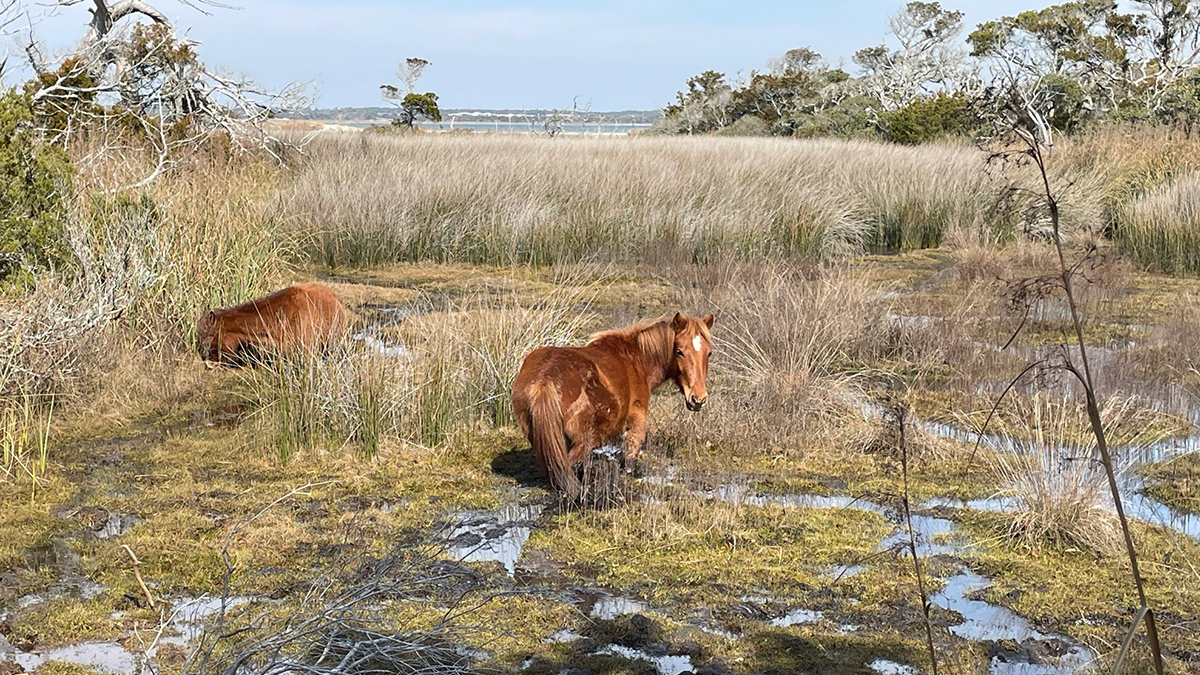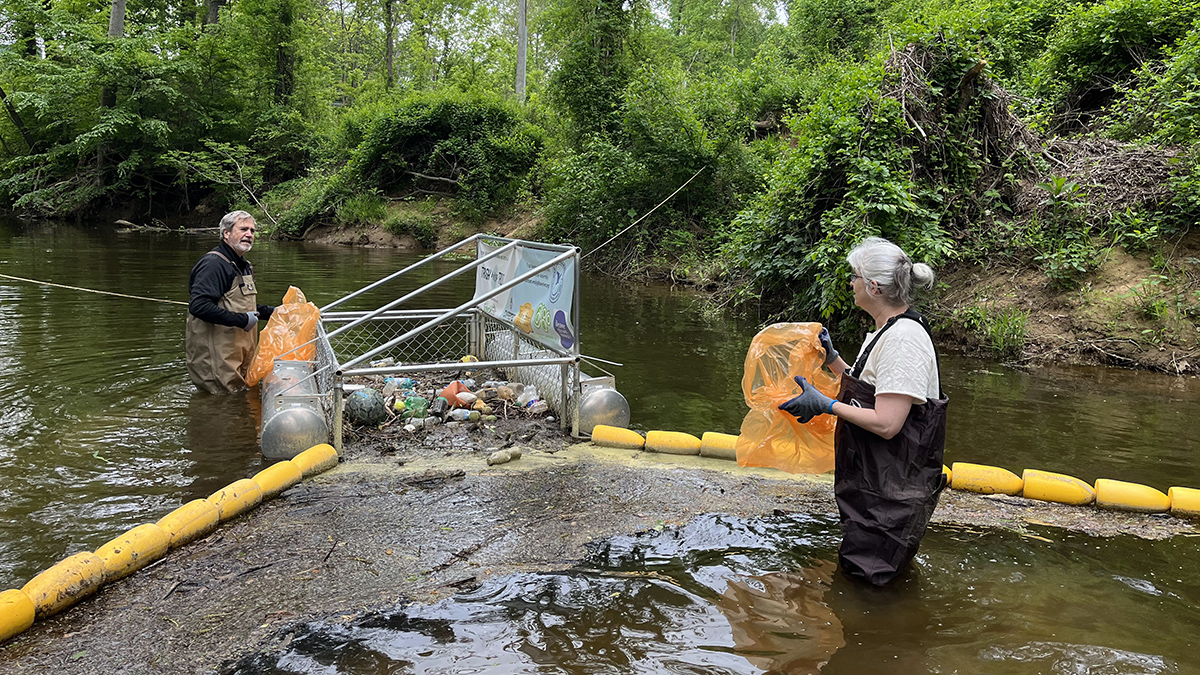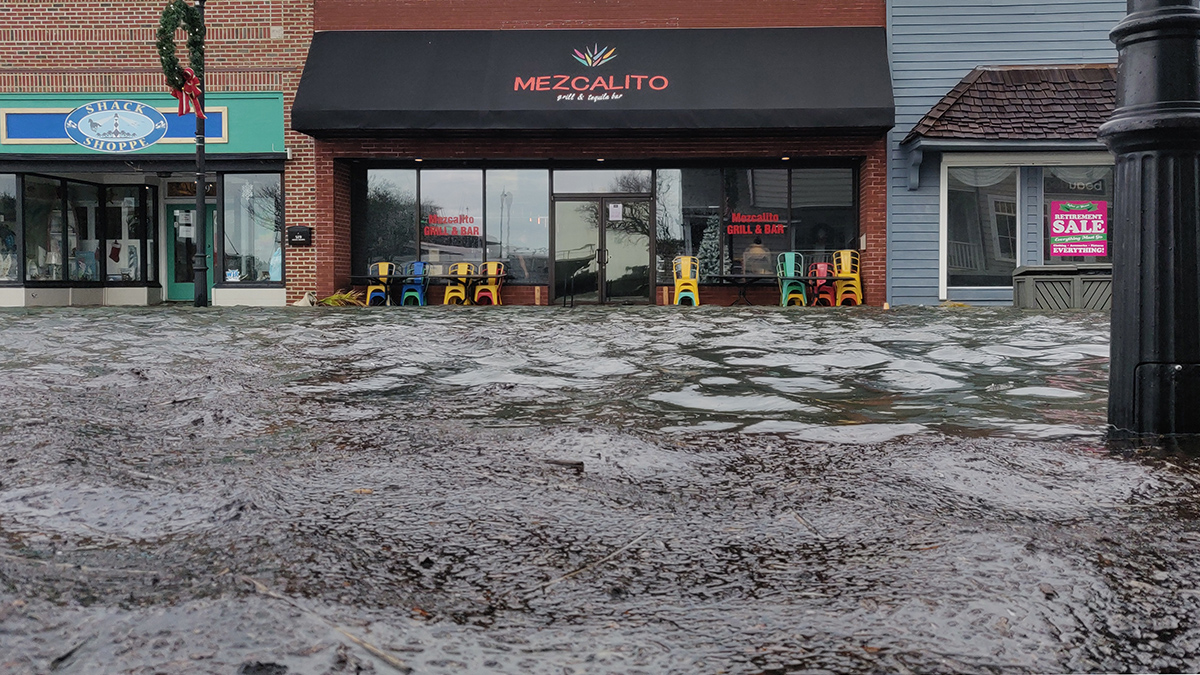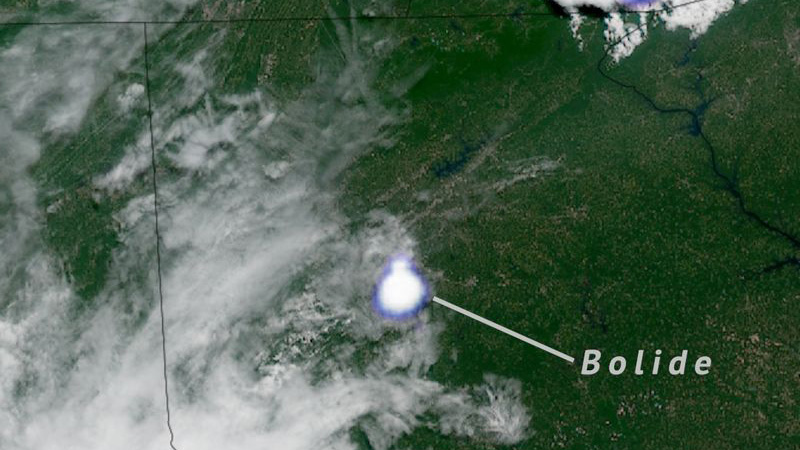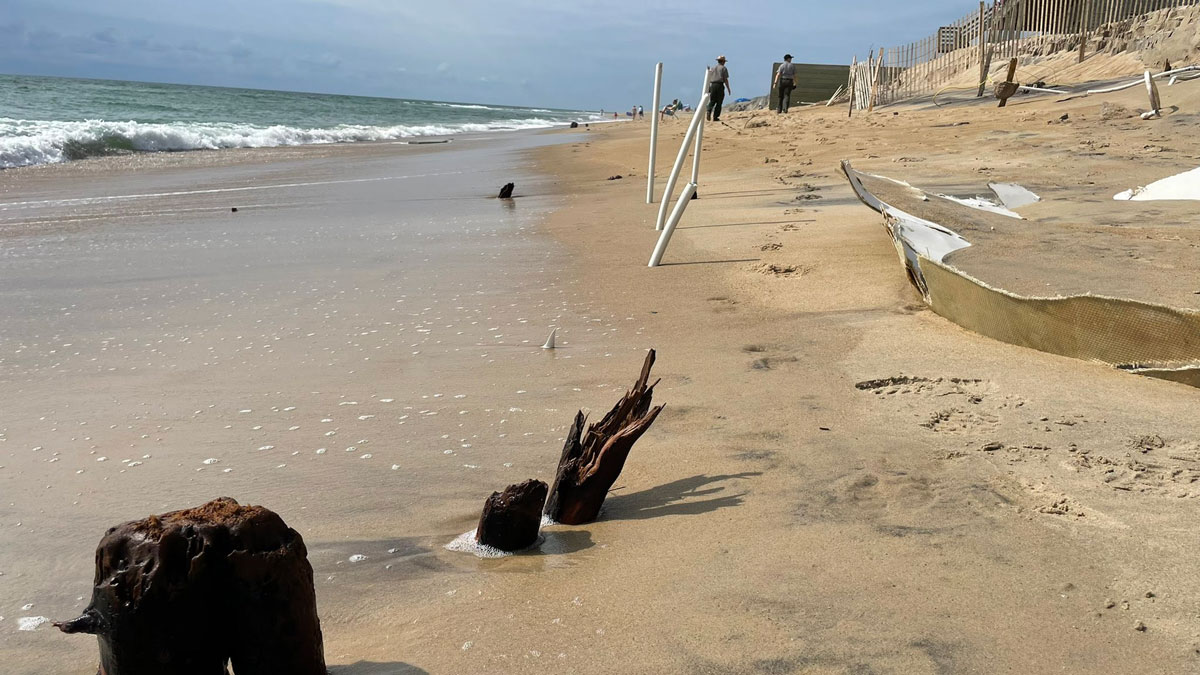New research monitors how saltwater intrusion is affecting the behaviors of Shackleford Banks’s wild horses.
North Carolina
How North Carolina Trash Traps Could Help Inform Policy
Staff and volunteers at Waterkeepers collected and categorized more than 150,000 pieces of trash from the state’s waterways, the vast majority of which were plastic.
Extreme Heat in U.S. Cities Revealed at High Resolution
Data from personal weather stations power a novel way to detect urban heat islands.
Residents Know When Floods Happen, But Data Must Catch Up
Federal flood measurements often don’t match what people see in their communities. Scientists have created a hyperlocal solution.
Fireball Passes Over Southeastern United States
It’s a bird! It’s a plane! It’s… a bolide!
Buried Tree Stumps Show Shoreline Shifts of the Outer Banks
Storms are unburying centuries-old stumps on North Carolina’s barrier islands. Researchers hope these long-gone forests can help land managers plan for the future.
Barrier Islands Are at the Forefront of Climate Change Adaptation
Coastal evolution modeling sheds light on the impacts of coastal development and adaptation decisions on barrier islands in the era of sea-level rise.
Ants Aren’t Adapting to Warmer Temperatures
Foraging in hotter-than-desired temperatures could negatively affect ants’ biology and the forest ecosystems that they support.
Sedimentos lacustres registran el legado del carbón de Carolina del Norte
Los lagos contaminados con cenizas de carbón se encuentran en áreas residenciales y recreativas, provocando preocupaciones por la salud de los residentes locales y los ecosistemas.
Lake Sediments Record North Carolina’s Coal Legacy
Coal ash–polluted lakes are in residential and recreational areas, invoking concern for the health of local residents and ecosystems.

